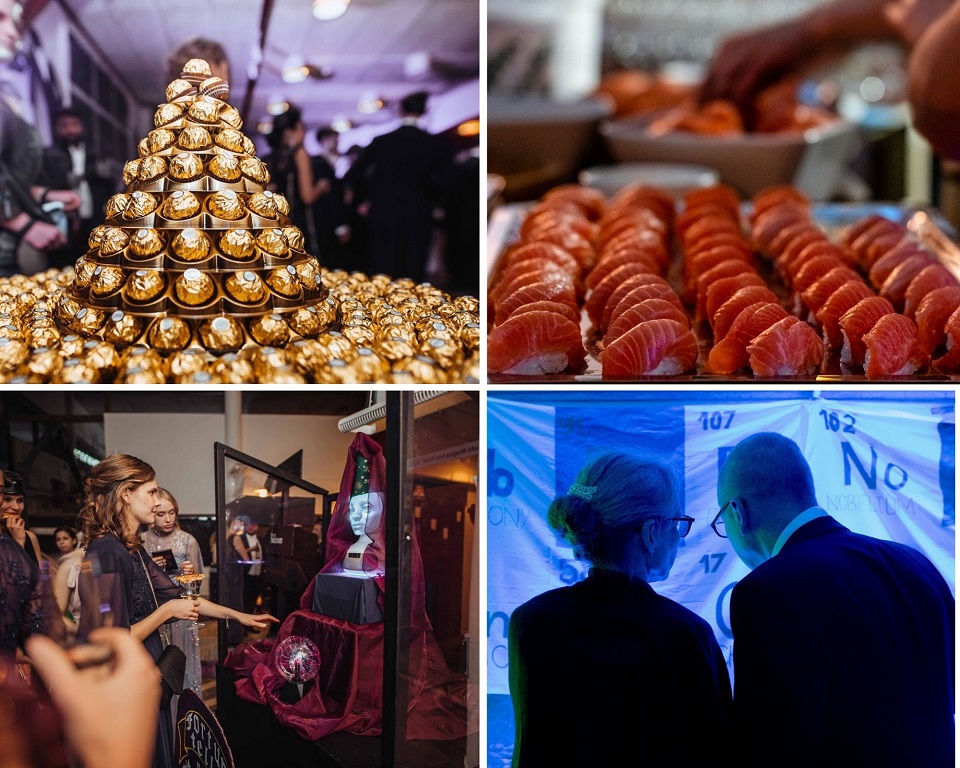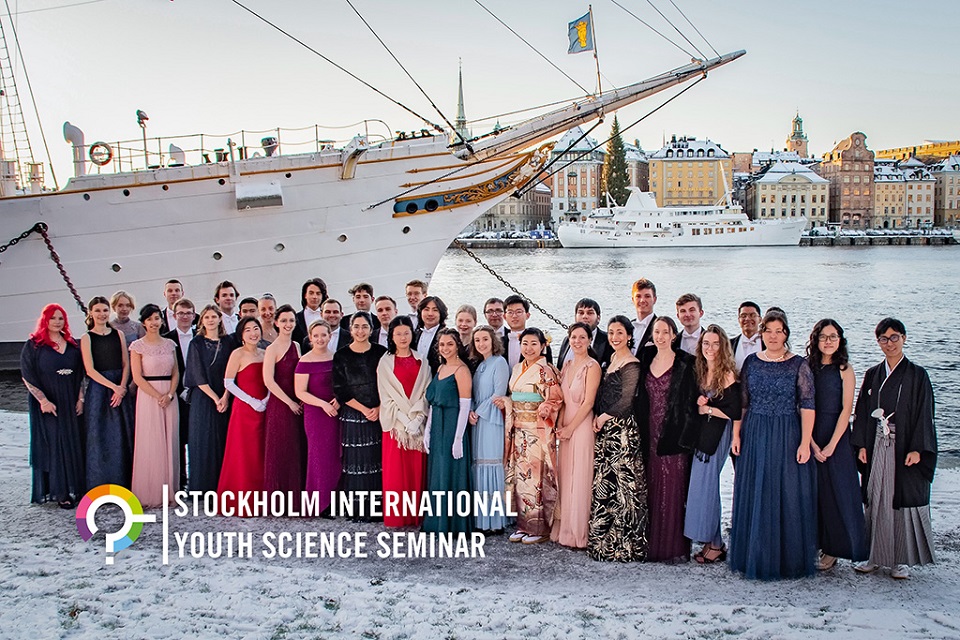Attending the Nobel Ceremony, Fika and a Nightcap in Stockholm

In the midst of high school graduation anxiety and college acceptance uncertainty, 18-year old, Shicheng Hu, (ISEF 2019) briefly escaped into a scientist’s dream: sitting around an elegant dinner table in Europe, encircled by laureates at the 2019 Nobel Prize ceremony.
“I was very happy to see my heroes receive their awards—secretly hoping that one day I, too, could make a scientific contribution that deserves the Nobel Prize.” The young, aspiring chemist described the evening. “Beautiful music played. I felt like a princess in my elegant dress. There was no science talk at the actual ceremony, so I immersed myself in the music, language and culture.”
Shicheng, who is from Shanghai, China, was one of three 2019 ISEF winners selected to represent the US at the Stockholm International Youth Science Seminar (SIYSS), an exceptional trip that dates back to 1976, where young scientists from 20 countries are given admission to the week of Nobel festivities. The students participate in an all-expenses paid, weeklong visit to Stockholm, Sweden, one of three sought-after trips that can be won at ISEF.
The Nobel dinner events left a keen impression on Shicheng. “The food was so delicate at the Nobel dinner. While we ate, we could see how our food was prepared on a screen nearby! I really appreciated all the efforts,” she said.

“I was trying to figure out if the opera at dinner was in German or Italian—Das ist Deutsch!” Shicheng resolved. (Translation: the opera is in German!) “Though we had English translations of the ceremony on hand, I tried to understand as much Swedish as possible. My goal of mastering Swedish before arriving in Sweden was a fail!”
Shicheng was accompanied by two of her fellow ISEF alumni in Stockholm, Adam Kelly from Ireland and Adrien Jathe from Germany. After taking part in Fika (pronounced fee-ka), a Swedish cultural and traditional coffee or tea experience, the well-caffeinated students headed to the traditional Nobel Nightcap, the official after-party of the Nobel Prize festivities, which typically runs till dawn. “It was the first time I partied till 5am! The three of us had a great time: Adrien and I waltzed, and later we danced with Adam and other people in a disco; We had chocolates, sushi, barbeque and oysters; we went to chemistry labs and entered Harry Potter themed rooms,” Shicheng described.
Believe it or not, the Nobel ceremony in Stockholm wasn’t Shicheng’s first time meeting the Nobel laureates. Just a few months prior in October 2019, she met many of the recipients in the academic setting of the World Laureates Forum in Shanghai. There, she had the opportunity to participate and speak at a roundtable discussion as a student representative. Thus, the celebratory occasion in Stockholm left Shicheng feeling less intimidated and more relaxed.
“I loved listening to their Nobel lectures, and discussing scientific problems with them. Science excites me, and the chance to see the annual celebration of biggest scientific contributors inspired me.” One person in particular stood out to Shicheng: Nobel Prize in Chemistry recipient, John P. Goodenough, the pioneer inventor of the lithium-ion battery, who ultimately led the world towards the wireless revolution. Like her hero, Shicheng also hopes to become a chemist. Her current research interests include electrochemistry and organic chemistry.
“I admire Professor Goodenough for trying so many fields in his life, and he’s still doing science at the age of 97.” Before meeting him, Shicheng had planned to retire at the age of 60, “like people generally do, but Professor Goodenough has showed me that exploring more diverse fields in science can be both interesting and helpful, and I can always strive to continue my passion.”


